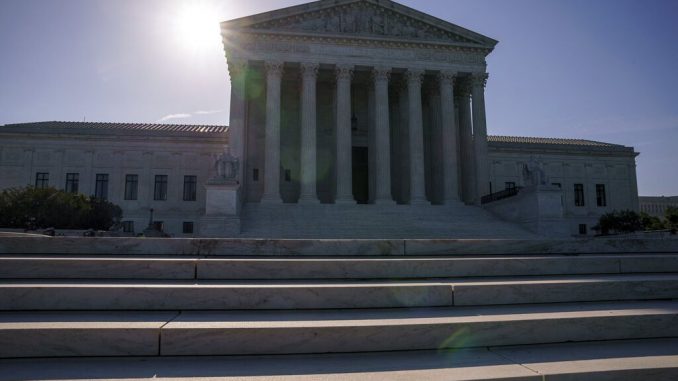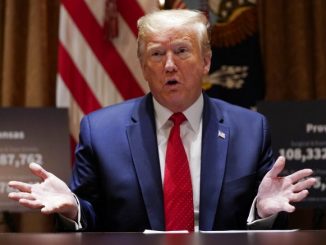

The U.S. Supreme Court is seen on Capitol Hill in Washington, Tuesday, June 29, 2021. (AP Photo/J. Scott Applewhite)
OAN Newsroom
UPDATED 10:17 AM PT – Tuesday, June 29, 2021
The Supreme Court issued rulings on a number of high profile cases involving immigration law, tax code and more.
Justice Clarence Thomas delivered a rare statement saying federal marijuana laws may no longer be necessary. His comments kicked off a packed day for the high court on Monday. Thomas went on to say the federal government uses a “half-in, half-out” approach both tolerating and forbidding local use of marijuana at the same time. The statement followed a court decision to deny hearing the appeal of a Colorado medical marijuana dispensary after they were not granted federal tax breaks like other businesses.
The court also denied an appeal in a case regarding transgender students at a Virginia school using the restroom of their choice. The supreme court revealed it will not be considering a school board’s challenge to a ruling, striking down its bathroom policy. This leaves in place a decision in favor of now former high school student Gavin Grimm who had first launched a lawsuit on part of wanting to use the bathroom of his choice.
I was barred from the bathroom at my highschool 7 years ago, when I was 15. 6 years ago, at 16, myself with the @ACLU/@ACLUVA filed suit in response to that discrimination. Twice since I have enjoyed victories in court, and now it’s over. We won.
— Gavin Grimm 🏳️⚧️ (@GavinGrimmVA) June 28, 2021
Another major ruling the court handed down involved a conflict between New Hampshire and Massachusetts. New Hampshire argued such Massachusetts’s decision to tax out-of-state workers working from home as if they were in-state worker violated their citizens’ rights as those working from home were physically working in New Hampshire. The Supreme Court stated, however, if individuals have grievances with Massachusetts’ tax law then they should fight it themselves.
Perhaps the biggest news coming from the bench, however, was the addition of Patel v. Garland to the docket. The case in which an immigrant from India argues he should avoid deportation and be given a green card after lying about his citizenship on a driver’s license application. Patel entered the United States illegally in 1992 and is relying on a provision of immigration law granting discretionary relief in certain circumstances.
The decisions mark some of the last to come from the high court for the current session before the summer recess.





Be the first to comment